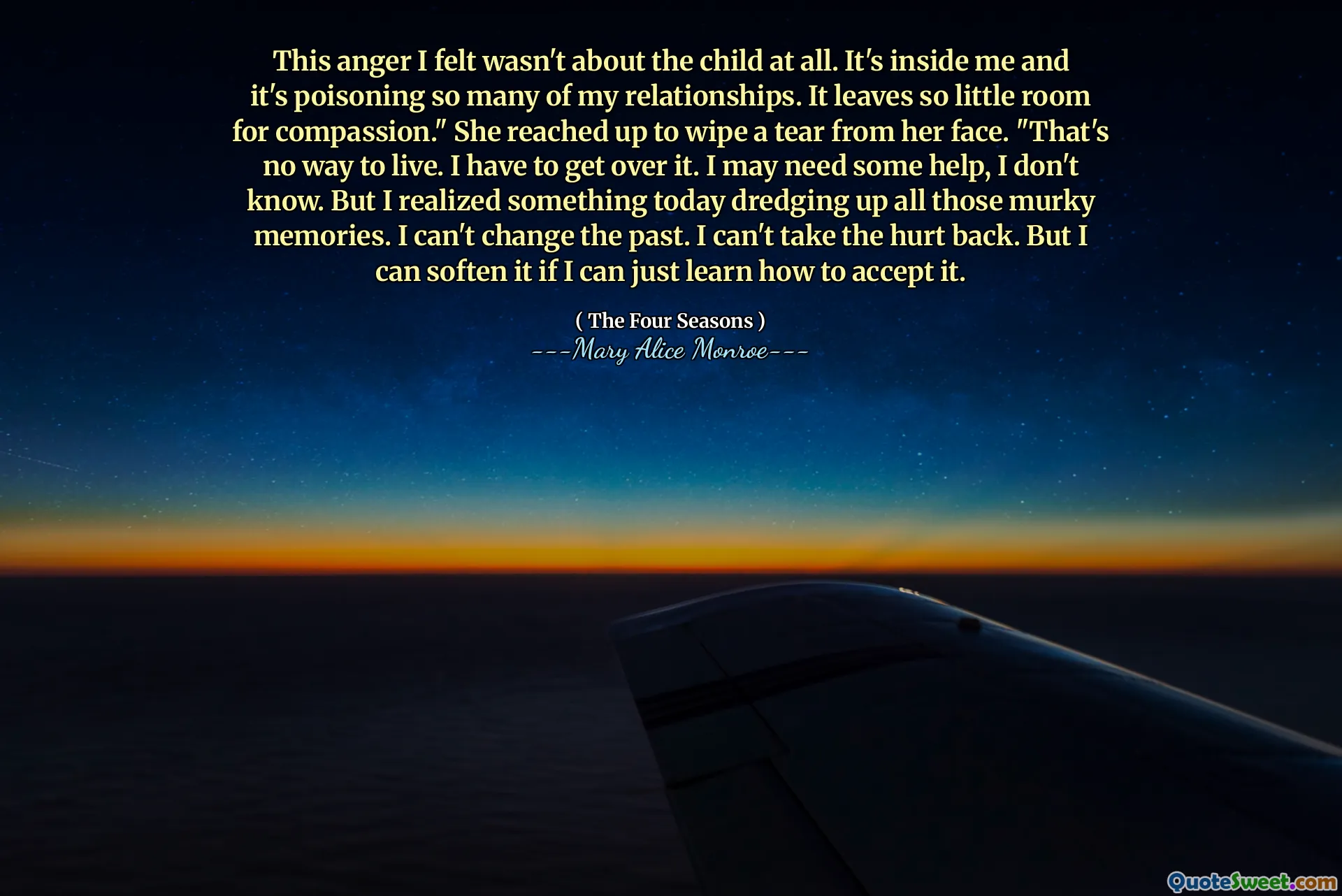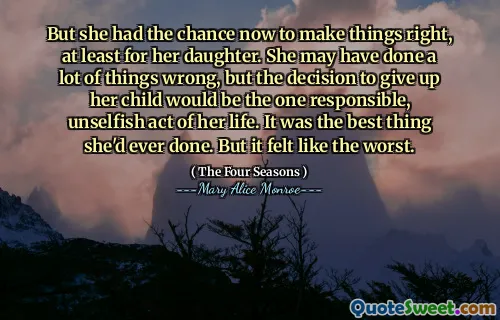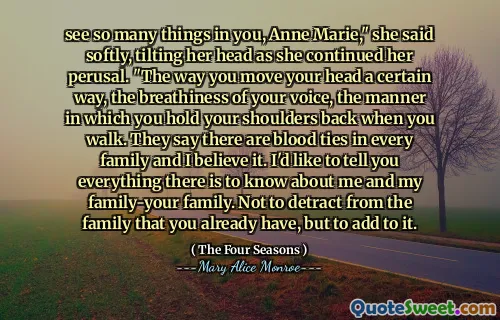
This anger I felt wasn't about the child at all. It's inside me and it's poisoning so many of my relationships. It leaves so little room for compassion." She reached up to wipe a tear from her face. "That's no way to live. I have to get over it. I may need some help, I don't know. But I realized something today dredging up all those murky memories. I can't change the past. I can't take the hurt back. But I can soften it if I can just learn how to accept it.
The character reflects on her deep-seated anger, recognizing that it originates from within her rather than being directed at others, including a child. This anger is detrimental to her relationships, suggesting that it hinders her ability to show compassion. She acknowledges that living with this anger is not sustainable and expresses a desire to overcome it, even considering seeking help to move forward.
As she confronts painful memories, she comes to an important realization: while she cannot change the past or undo the hurt she's experienced, she has the power to ease its impact on her life. By learning to accept her past, she hopes to find a way to soften the pain and heal, thereby improving her present and future relationships.











